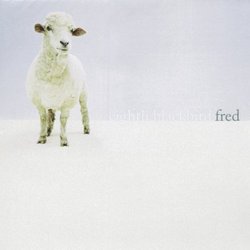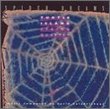| All Artists: Frederic Rzewski, Eighth Blackbird Title: Fred Members Wishing: 1 Total Copies: 0 Label: Cedille Release Date: 6/28/2005 Genres: Special Interest, Classical Styles: Chamber Music, Historical Periods, Classical (c.1770-1830), Instruments, Electronic Number of Discs: 1 SwapaCD Credits: 1 UPCs: 735131908429, 669910245361 |
Search - Frederic Rzewski, Eighth Blackbird :: Fred
 | Frederic Rzewski, Eighth Blackbird Fred Genres: Special Interest, Classical On fred, the celebrated contemporary music sextet performs sparkling works showcasing the broader chromatic palette of an American master best-known for his piano music. The program is imbued with the composer's eccentr... more » |
Larger Image |
CD DetailsSynopsis
Album Description On fred, the celebrated contemporary music sextet performs sparkling works showcasing the broader chromatic palette of an American master best-known for his piano music. The program is imbued with the composer's eccentric spirit, improvisational surprises, and social conscience: eighth blackbird's propulsive new arrangement of Rzewski's dramatic Coming Together, in which music accompanies the text of a letter by an inmate killed in the Attica prison uprising of 1971; the energetically playful "musical game" Les Moutons de Panurge; and the world premiere recording of Rzewski's inventive Pocket Symphony, written specially for eighth blackbird. Similar CDs
Similarly Requested CDs
|
CD ReviewsDisarming,and serious creations for the human condition scarecrow | Chicago, Illinois United States | 06/27/2006 (5 out of 5 stars) "this is a nice tribute to Rzewski,the "Hanns Eisler" of the USA,(even though he has lived in Europe most of his life)for imparting throughout his career the sense of the political in his work;and he has never flinched from offering a work consistent with the causes of the Left and the issues facing the populace unpretenciously;as he choral "Stop the War" and although he is known as an incredible solo pianist his compositions have an equal fascination for their thought,concept,timeliness, accesibility,musical technique and timbral dimensions;there are two of his primary works here written around the same time in the early Seventies."Coming Together"(January,1972)originally done with the Living Theater, still has a resonance, unfortunately since the prison population has only increased(doubled) since the riots at Attica State prison in New York State, (the Reagan Years saw this increase), and human rights within confinement has not improved either, The text from a letter by Sam Melville,(murdered at Attica)is a pen name actually,and is focused on the quality of humanity that is still desired,even though life itself is somewhat lost. It is a personal declamation on the state of a human being reduced to living where he or she is, confined. The text is recited straight as a piece of drama following the music.It can be done merely with the pianist reciting and playing simultaneously. The musical accompaniment is focused around running sixteenths modal patterns in g minor-ish, the ensemble, for any number can either follow this pattern or/and add improvisatory commentary to it,but mindful that it is an accompaniment.If done correctly the piece can mount to incredible power and resonance with pacing that foments the momentum forward. The minimalist (rhythmic patternings)language chosen by Rzewski is quite different than the other minimalists sought, to me anyway, bass cantus acts as a musical metaphor for the stasis of a human life,reduced to daily routine,boredom,servitude,depression; the music does not develop so much as simply "lives" its space; although Rzewski did utilize an elaborate numbering patterning for the change of tones, additives as the piece progresses through time. "Les Moutons" quite apart in expressions has more of a playful,uplifting edge to it, again the work is based on a (mantra-ized)modal melody quite beautiful when played by itself, the performers enter much like Terry Riley's "In C" in dovetails, fugal,and the resulating determinate/interdeterminate harmonies are great to listen; but Rzewski advises in his introductory notes, "if you get lost, stay lost" much like a sheep that has gone astray from the fold. The "pocket symphony" is also great piece revealing Rzewski's sense of interesting timbres as all his chamber music exhibits." A fantastic portrait of Rzewski Sor_Fingers | Boulder, CO USA | 03/10/2007 (5 out of 5 stars) "Eighth Blackbird has really put together a great project in their album "Fred." Rzewski's catalogue of work is so vastly diverse. You have his atonal monster piano piece "The People United Will Never Be Defeated," is American inspired piano solos, and his more minimalist projects as well. In this album, Eighth Blackbird has really put together a great portrait of Rzewski's work on one CD.
In Pocket Symphony, Eighth Blackbird exposes the audience to Rzewski's atonal side. The piece is extremely well performed and all of the instrumentalists show their virtuosity on this piece. It's a truly profound performance. The other side of the coin is that Eighth Blackbird shows how well they work together as an ensemble with "Les Moutons de Panurge" and "Coming Together." The score for "Les Moutons de Panurge" is simply a 65 note melody in which the performers play the first note, then the first and second, then they add the third and continue on adding one note at a time until they reach the ultimate 65th note. Once they reach the 65th note, they start subtracting notes from the beginning of the melody. It's almost impossible for a large ensemble to stay together in this task, so Rzewski says, if you get lost stay lost. The result is contrapuntal Nirvana. Coming Together is equally intriguing. There is a bass vamp and other instruments that support it while a narrator reads text from a war prisoner's letter to a friend. The piece is absolutely haunting and the narration on this CD is outright stunning. This is without question the best recording of this work available. Period. No Questions asked. Rzewski is one of the most creative composers the 20th century has brought forth. Any lover of new music owes it to themself to own this record." |









